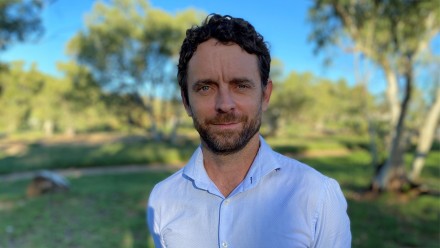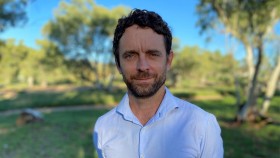Tackling Indigenous Smoking
Share
Accelerating further reductions in tobacco use, and consequently eliminating tobacco-related death and disease is incredibly exciting. And that’s exactly what Dr Raglan Maddox and his colleagues are aiming to achieve.
The normalisation of commercial tobacco use stems from colonisation, where tobacco was industrialised and provided by colonisers as a tool to aid exploitation. In addition to the incredibly addictive nature of nicotine, the ongoing impacts of colonisation, including systematic economic and educational exclusion, have continued to entrench tobacco use. With an estimated 37% of all Aboriginal and Torres Strait Islander deaths attributed to smoking, tobacco use is a leading cause of death and disease.
The team were recently awarded a $3.7 million grant to evaluate the Tackling Indigenous Smoking (TIS) program – a nationwide initiative that aims to accelerate reductions in tobacco use. This includes preventing uptake, supporting people to be smoke-free and nicotine-free, increasing awareness of the benefits of being smoke-free, and increasing smoke-free policies.
“Through our grant, we will map out the tobacco control programs and policies implemented around Australia. We will also assess trends in smoking behaviours over time to help determine the impact of these programs and suggest ways they can be strengthened,” says Maddox.
The team will utilise existing data sets, including the Australian Bureau of Statistics, National Perinatal Data Collection, Mayi Kuwayu, and national Key Performance Indicators to explore the wide-ranging impacts of the TIS program.
“It's incredibly exciting to think about the potential for change through this project. We are incredibly lucky to go out and meet people in community and hear about their tobacco programing. So that's one of the things this program really highlights, ongoing Indigenous excellence,” says Maddox.
The cornerstone of this project is Aboriginal and Torres Strait Islanders leadership and engagement in all aspects of the research. This includes working with Aboriginal and Torres Strait Islander peoples in conceiving the project, as well as working directly with communities to collaborate in defining the direction and strategies to pursue.
“This is also the first time this TIS program has had an all-Indigenous Evaluation Executive, which is incredibly exciting. And all the work we do is guided by a national Aboriginal Torres Strait Islander reference group called Thiitu Tharrmay,” says Maddox.
Another important consideration throughout the work is regarding Indigenous data sovereignty – the rights of Indigenous people to develop, protect, use and share intellectual property associated with the project. Although this endeavour of data sovereignty is not without challenges, as a lot of the data the team will be accessing is governed by non-indigenous peoples and institutions, for example, data from the Australian Bureau Statistics.
“One of the ways that we can help apply Indigenous data sovereignty principles is to make sure that Aboriginal and Torres Strait Islander people drive research and evaluation,” says Dr Michelle Kennedy, a Co-investigator on the team. Or simply put – ‘nothing about us without us.’
It’s Aboriginal and Torres Strait Islander leadership and engagement throughout the entire project that will be key to its success.
“Aboriginal and Torres Strait Islander peoples face consistent challenges around health and wellbeing. One of the things that I continue to learn every day is how innovative, entrepreneurial, and smart communities are in driving and accelerating change,” says Maddox.
*Dr Raglan Maddox is part of the Tobacco Free Program at the National Centre for Aboriginal and Torres Strait Islander Wellbeing Research. The team were awarded $3.7m by the Department of Health for their proposal – Tackling Indigenous smoking - national program evaluation and regional grants impact and outcomes assessment.















